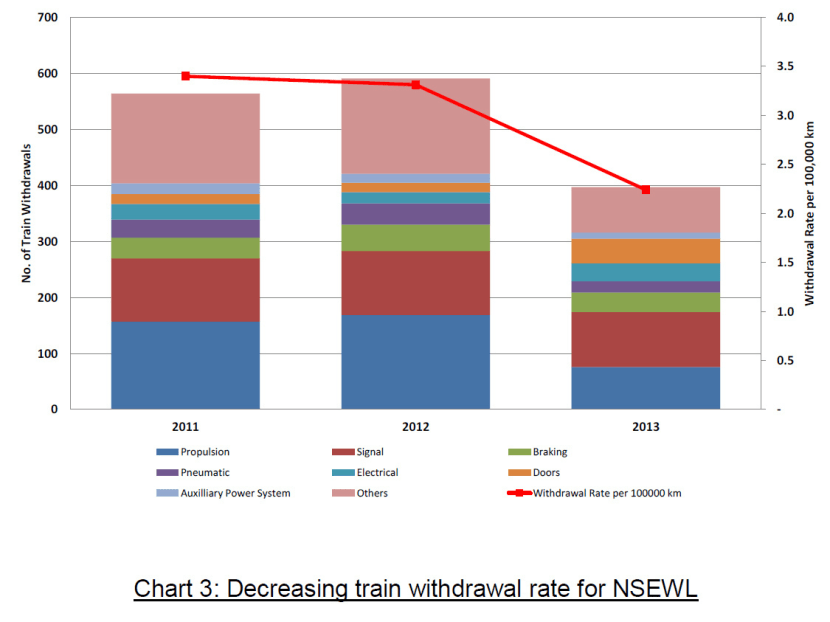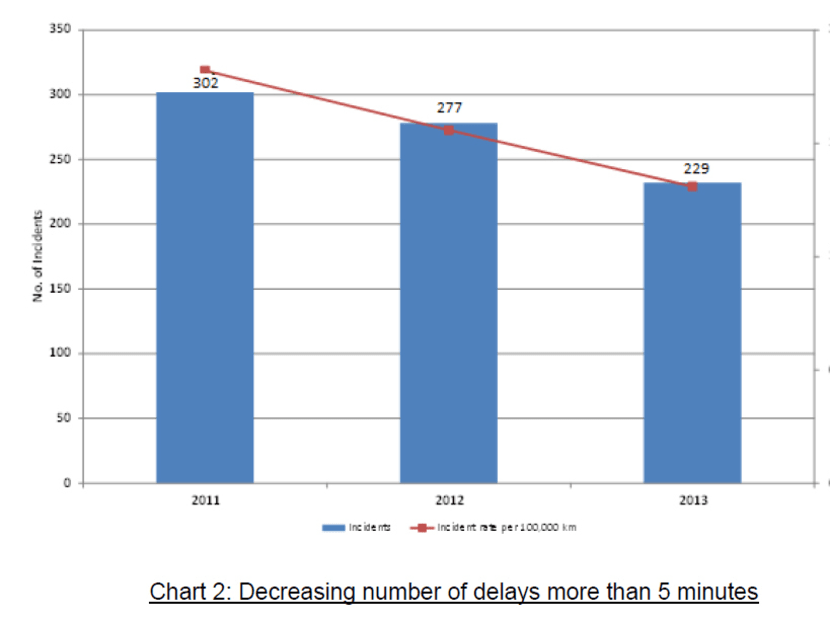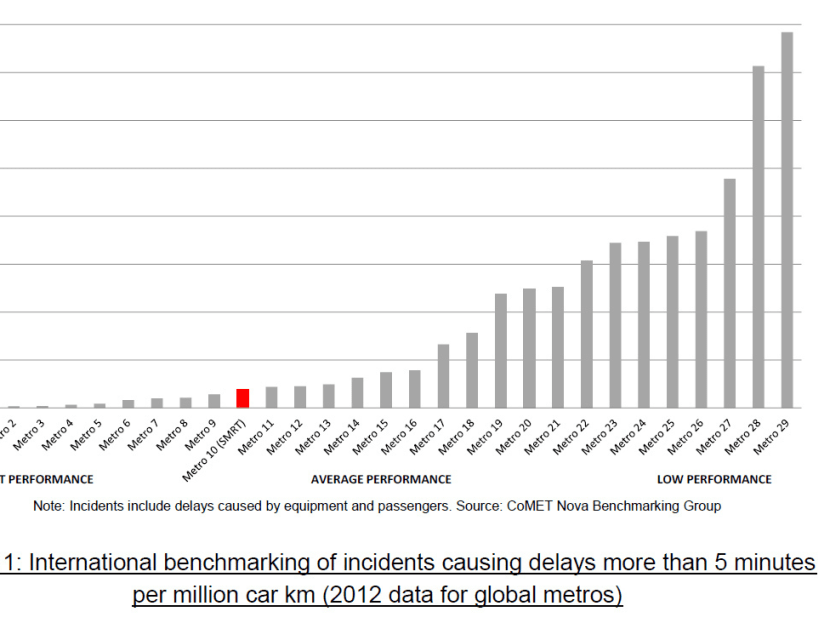SMRT states its case: Why disruptions happen, and what it’s doing to minimise downtime
SINGAPORE — Local transport operator SMRT Corporation issued a media release this morning (Feb 17) broadly explaining the causes behind the recent spate of incidents and train downtime, and reaffirming its commitment “to doing everything possible to improve the reliability of our network” — while warning that it will take years to perform all of the needed upgrades, and that commuters will inevitably face occasional disruptions to services in the meantime.
SINGAPORE — Local transport operator SMRT Corporation issued a media release this morning (Feb 17) broadly explaining the causes behind the recent spate of incidents and train downtime, and reaffirming its commitment “to doing everything possible to improve the reliability of our network” — while warning that it will take years to perform all of the needed upgrades, and that commuters will inevitably face occasional disruptions to services in the meantime.
“The recent spate of service disruptions in January 2014 has drawn public attention to the current state of reliability of SMRT’s train services. SMRT takes a serious view of all defects and makes every effort to investigate and address the root cause of every incident to draw out the relevant lessons to avert future occurrences,” the release stated.
Among the underlying reasons for the incidents: The age of the train network, higher operational loading and inadequate capacity. Other factors beyond its control included inclement weather and commuters having medical-related emergencies, it said.
“Regardless, SMRT takes responsibility for all incidents that occur on our North-South and East-West Lines (NSEWL), the Circle Line and Bukit Panjang LRT. We are committed to continually reviewing our systems and procedures to ensure that they are robust and relevant to guard against equipment failure or human error,” it added.
GLOBAL COMPARISON
Sharing the findings of a comparison of 30 global urban transport networks by the CoMET Nova Benchmarking Group, SMRT came in 10th in terms of incidents causing more than five-minute delays per million car km travelled in 2012, “We are consistently among the better operators in terms of international benchmarking of standards,” SMRT noted.
The train operator also provided statistics showing a decline in the number of incidents and long delays over the past two years.
In 2011 and 2012, the network saw four incident every five days, a figure which was down to about three incidents every five days in 2013. Last year also saw a decrease in the frequency of train withdrawals from service as a result of technical faults, down to an average of 1.09 a day, from 1.62 withdrawals a day the year before, according to SMRT.
UPGRADES IN THE PIPELINE
The transport operator, noting that its trains “run a cumulative distance of more than 1.5 times around the equator, and carry more than 2 million passengers daily”, spelt out its plans to ramp up the maintenance and renewal of its train network, both in terms of improving the hardware and the “process, technology and people” involved in its operations.
According to SMRT, some “reliability improvement modifications” completed over the past two years include:
• Upgrade of KNS train propulsion software to reduce power faults;
• Replacement of power supply units for KHI train propulsion system;
• Installation of electronic noise filters to improve the reliability of signalling system.
A number of components in propulsion, brakes, pneumatic and air-con systems are in the process of being refurbished, while a mid-life upgrade on our fleet of Siemens trains is in the pipeline, SMRT said. An intesification of work means the operator and the Land Transport Authority will have replaced all of the 188,000 timber sleepers across the North South and East West Lines with concrete ones by 2016, three years ahead of its 2019 original completion date.
The company added that work to replace the third-rail system that provides the power to the train system would begin soon.
Other areas of improvement include working towards a Publicly Available Specification (PAS55)/ISO-55001 certification to “optimise our life-cycle management approach towards the use of rolling stock and the associated rail systems”; collaborating with industry partners and academia to find technological solutions to existing problems; and the hiring of more engineers and technicians under an engineering professional competency roadmap.
WORK IN PROGRESS
SMRT added in its media release that “despite the challenging start to 2014, we are determined to maintain the momentum of improvements we are making.”
It added that “however, it takes time to design, plan and implement the various system reliability enhancements on our older generations of trains because of the need to continue to support daily operations. There are also limited engineering hours each night, between 1.30am and 4.30am, for us to do our repair works on the tracks.”
“Unfortunately, despite the best efforts and systems, there will inevitably be occasional delays and unexpected disruptions in train services. Under such situations, we seek the understanding and support of our commuters as we strive to recover and rectify the faults as quickly as possible with minimal inconvenience to our passengers. We continue to refine and improve our crisis recovery and contingency plans to deal with all such scenarios.”









